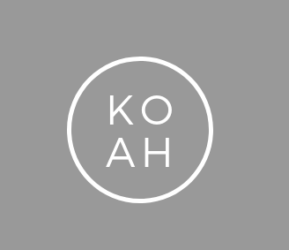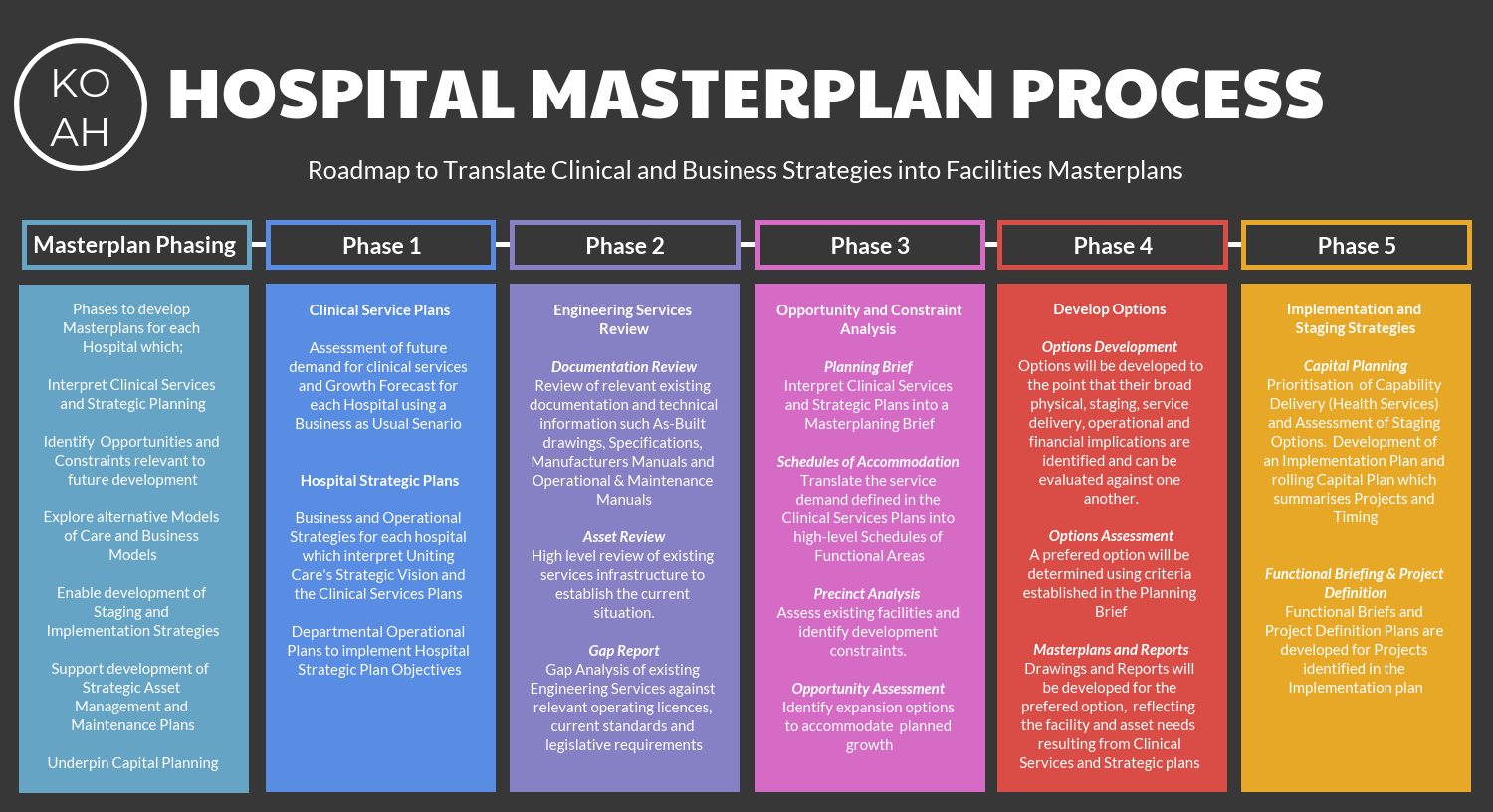Objectives
Koah is working with a Major Private Health Care provider to develop Hospital Masterplans across a portfolio of Private Hospitals in South East Queensland. Koah developed and implemented the strategic approach to Masterplanning, is progressively developing business cases and will lead development of Masterplans for each of the Hospitals. The Hospital Masterplans will support our clients Business Objectives and will become the foundation of a number of business and capital processes including;
- Interpreting Clinical Services and Strategic Planning into facilities requirements
- Identifying Opportunities and Constraints relevant to future development of the Hospital Precincts
- Exploring alternative Models of Care and Business Models – future proofing facilities for evolving business needs
- Underpin rolling Capital Planning
- Enabling development of Staging and Implementation Strategies which align to the Capital Plan and Operational needs
- Support development of Strategic Asset Management and Maintenance Plans
The Challange
Health Care and Hospitals are very dynamic environments. Care needs to be taken when introducing ad hoc projects which are not core business not to overwhelm stakeholders who are very busy and focused on Clinical Services Delivery and Hospital Operations. Some of the key challenges we have encountered when overlaying capital planning process on operational hospital teams include;
- Managing Cultural Change – Masterplanning is forward looking and by definition involves disruption of the ‘status quo’.
- Dynamic Clinical and Operational Models – The nature of Health Care is rapidly changing.
- Delivering within Operational Budgets – Whilst hospital operators generally understand and support masterplanning, fitting this ad hoc expenditure within operational budget constraints can be a challenge
- Overloading Staff and Leadership – running hospitals and delivering clinical services is demanding, how do we find time to support the Masterplans
- Briefing – getting everyone on the same page and managing expectations
Koah’s Approach
To help simplify the percieved complexity surrounding the Masterplanning process we developed the simple phased approach above as a ‘Road Map’ to translate our client’s Business and Clinical Objectives into Facilities Outcomes. We are using this roadmap as a communication tool and framework to guide developing the Hospital Masterplans. This Roadmap forms the basis for key Masterplanning Processes and Deliverables such as;
- Master Schedule Phasing
- Business Case Development and Refinement
- Stakeholder engagementConsultant Team Briefing
- Progressive and Flexible Engagement Co
- Parallel tracking of work streams and phases
We’ve found this simple communication tool and flexible delivery framework has had a big impact helping unravel perceived complexity by enabling a consistent approach to deliverables and clarity for stakeholders each step of the way.
- Consistency
- Clarity
- Flexibility
- Purpose
If you want to know more or adapt this process to help with your own unique challenges, get in contact using the links below.
Koah – Simplifying Complexity


